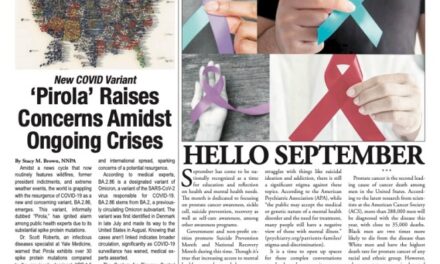By Stacy M. Brown | NNPA Newswire Senior National Correspondent
The Biden-Harris Administration announced it would host the White House Conference on Hunger, Nutrition, and Health on Sept. 28 in Washington, DC.
As the President announced in May, this will be the first Conference of this kind in more than 50 years.
“Millions of Americans are afflicted with food insecurity and diet-related diseases —including heart disease, obesity, and type 2 diabetes —which are some of the leading causes of death and disability in the U.S. Lack of access to healthy and affordable foods is one of many factors impacting hunger and diet-related diseases,” White House Press Secretary Karine Jean-Pierre wrote in a statement.
“The COVID-19 pandemic has exacerbated these challenges further,” Jean-Pierre stated.
She said the conference would bring government leaders, academics, activists, and Americans from all walks of life together to achieve the goal of ending hunger and reducing diet-related diseases in the U.S. by 2030 – all while reducing disparities among the communities who are impacted the most by these issues.
“We will announce a national strategy at the conference that identifies actions the government will take to catalyze the public and private sectors to drive transformative change and address the intersections between food, hunger, nutrition, and health,” Jean-Pierre said.
The first White House Conference on Food, Nutrition and Health occurred in 1969. Many considered it a pivotal event that influenced the nation’s food policy agenda for the next half-century.
The White House said President Biden’s goal is to do the same with this year’s conference.
“Hunger, diet-related disease, and the disparities surrounding them impact millions of Americans, and the COVID-19 pandemic put a spotlight on the urgency of addressing these issues,” said Ambassador Susan Rice, the Biden Administration’s Domestic Policy Advisor.
“No one should have to wonder where their next meal will come from,” Rice continued.
“We must take bold steps now—with government, the private sector, non-profits, and communities working together—to build a healthier future for every American.”
To learn more and join in taking bold action to end hunger and reduce diet-related diseases and disparities, visit whitehouse.gov/hungerhealthconference.










